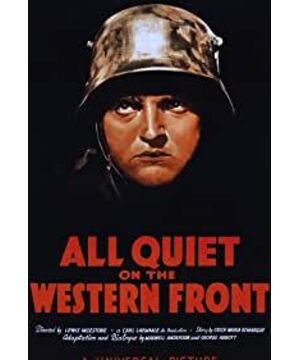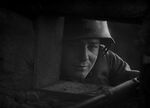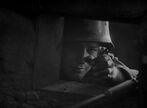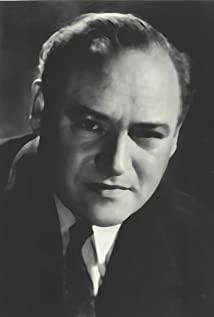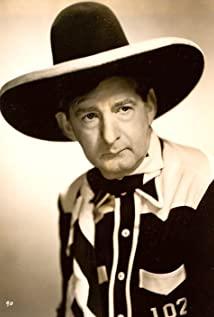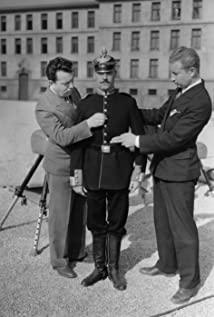Professor Kantorek:
Paul! How are you, Paul?
Paul Bäumer:
[somber]
Glad to see you, Professor.
Professor Kantorek:
You've come at the right moment, Baumer! Just at the right moment!
[to students]
Professor Kantorek:
And as if to prove all I have said, here is one of the first to go! A lad who sat before me on these very benches, who gave up all to serve in the first year of the war. One of the iron youth who have made Germany invincible in the field! Look at him. Sturdy and bronze and clear-eyed! The kind of soldier every one of you should envy! Paul, lad, you must speak to them. You must tell them what it means to serve your fatherland.
Paul Bäumer:
No no, I can't tell them anything.
Paul Bäumer:
You must, Paul. Just a word. Just tell them how much they're needed out there. Tell them why you went, and what it meant to you.
Paul Bäumer:
I can't say anything.
Professor Kantorek:
If you remember some deed of heroism, some touch of humility, tell about it.
[encouraging murmurs from the students]
Paul Bäumer:
I can't tell you anything you don't know. We live in the trenches out there, we fight, we try not to be killed; and sometimes we are. That's all.
[students fidget, disappointed]
Professor Kantorek:
No, no Paul!
Paul Bäumer:
[angry]
I've been there! I know what it's like!
Professor Kantorek:
That's not what one dwells on, Paul!
Paul Bäumer:
[bitterly]
I heard you in here, reciting that same old stuff. Making more iron men, more young heroes. You still think it's beautiful and sweet to die for your country, don't you?
[Kantorek nods firmly]
Paul Bäumer:
We used to think you knew. The first bombardment taught us better. It's dirty and painful to die for your country. When it comes to dying for your country it's better not to die at all! There are millions out there dying for their countries, and what good is it?
[muttering from students]
Professor Kantorek:
[shocked]
Paul!
Paul Bäumer:
[angry]
You asked me to tell them how much they're needed out there.
[to students]
Paul Bäumer:
He tells you, "Go out and die!" Oh, but if you'll pardon me, it's easier to *say* go out and die than it is to do it!
Student:
Coward!
Paul Bäumer:
And it's easier to say it, than to watch it happen!
students:
Coward! You're a coward! Coward!
Professor Kantorek:
No! No, boys, boys! I'm sorry, Baumer, but I must say...
Paul Bäumer:
We've no use talking like this. You won't know what I mean. Only, it's been a long while since we enlisted out of this classroom. So long, I thought maybe the whole world had learned by this time. Only now they're sending babies, and they won't last a week! I shouldn't have come on leave. Up at the front you're alive or you're dead and that's all. You can't fool anybody about that very long. And up there we know we're lost and done for whether we're dead or alive. Three years we've had of it, four years! And every day a year, and every night a century! And our bodies are earth, and our thoughts are clay, and we sleep and eat with death! And we're done for because you *can't* live that way and keep anything inside you! I shouldn't have come on leave. I'll go back tomorrow. I've got four days more, but I can't stand it here! I'll go back tomorrow! I'm sorry.
[exit]


